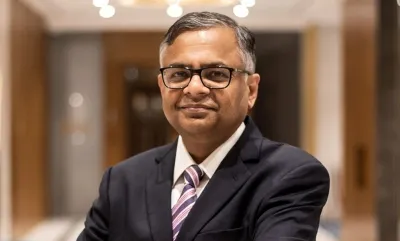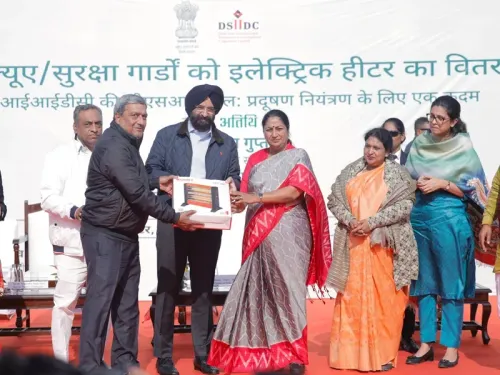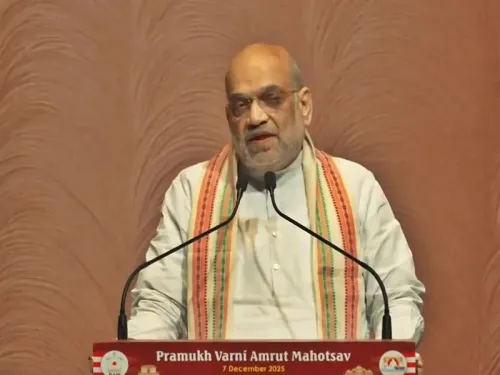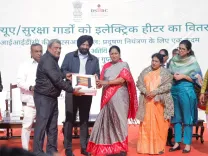India's Bold Advances in Renewable Energy Following Strong Digital Infrastructure: Insights from N. Chandrasekaran

New Delhi, Jan 5 (NationPress) Following the establishment of a world-class digital public infrastructure (DPI), India is making significant progress in the renewable energy sector, a critical area of global transition, as emphasized by Tata Group Chairperson N. Chandrasekaran.
As of 2024, the nation has achieved an impressive 214 GW of installed green energy capacity and is well-positioned to reach its ambitious goal of 500 GW of energy capacity from non-fossil fuel sources by 2030.
Speaking at the 'Global Alumni Meet (GAM) 2025' hosted by NIT Trichy in Chennai, Chandrasekaran highlighted that the share of renewable-based electricity has increased to 45 percent, a notable rise from around 30 percent a decade ago.
“However, this progress is not sufficient. To meet the 1.5-degree target established in Paris, global carbon emissions must decline by 43 percent this decade. Instead, from 2019 to 2024, emissions have risen by 3.3 percent,” he explained to the audience.
In a remarkable achievement for the PM Surya Ghar Muft Bijli Yojana, the initiative has recorded over 685,000 installations and is projected to exceed a decade's worth of solar growth within just one year. Since its launch in February of this year, the scheme has reached 86 percent of the total installations made in the previous decade.
According to the Tata Group Chairperson, the digital infrastructure established in India is unparalleled globally.
“We possess outstanding digital systems, including our payment networks, Aadhaar, healthcare platforms, settlement systems, and retail banking infrastructures. Our digital frameworks are some of the best in the world. We also have the necessary talent,” he remarked.
Chandrasekaran also noted that, despite a slowdown in growth this year, India is set to remain the fastest-growing economy worldwide.
“The Indian economy is robust. Even with this year's growth moderation, we will continue to outperform other nations. We are on track to be the fastest-growing country,” he asserted.
Looking ahead, the year 2025 is anticipated to be a transformational year for AI, with substantial investments expected in small language models (SLMs), while large language models (LLMs) will also contribute significantly, according to Chandrasekaran.










